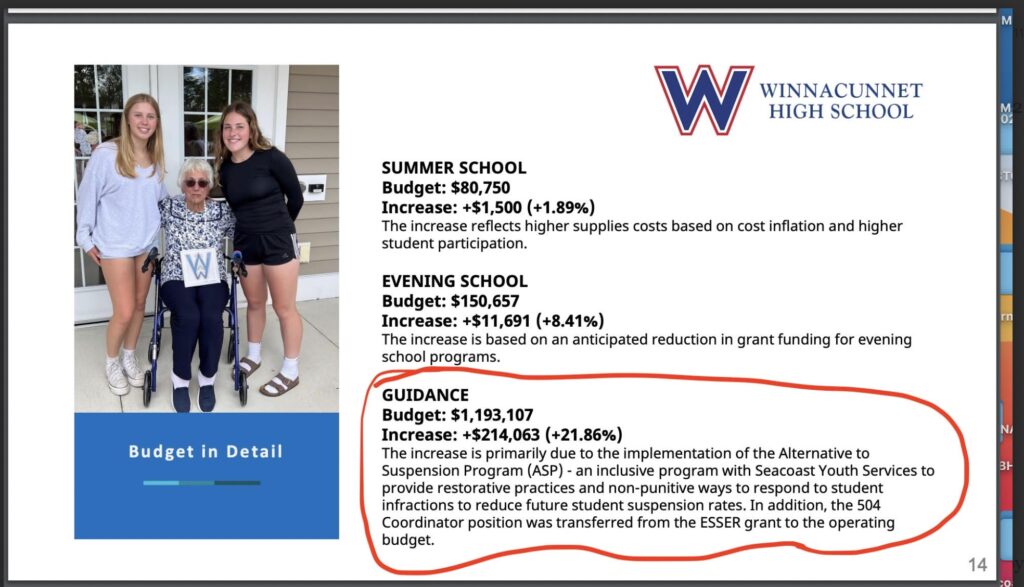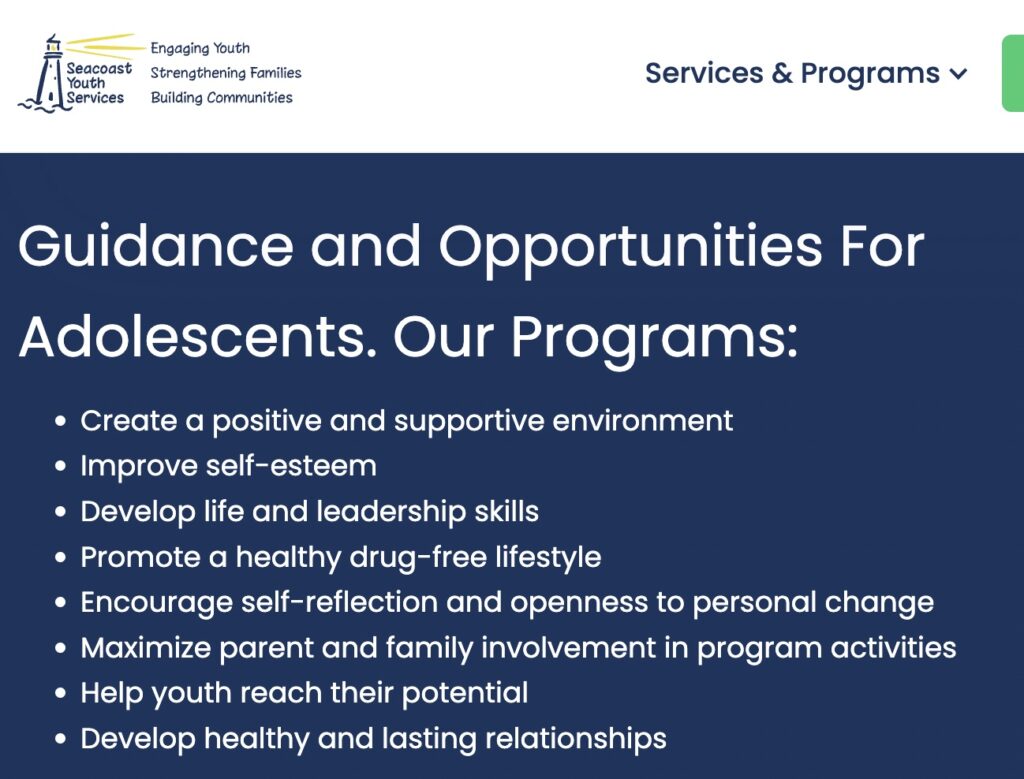It wasn’t that long ago that the Executive Director from the New Hampshire Chapter of the National Association of Social Workers testified before the New Hampshire Senate, and indicated that Social Workers were violating Federal Law:

Executive Director Lynn Stanley, from the New Hampshire Chapter National Association of Social Workers, testified before a Senate Judiciary Committee on SB 573. SB573, as introduced, would have required parental consent for any medical or mental health care. This would have essentially required what ESSA already requires when it comes to consent for mental health services in our schools.
During Ms. Stanley’s testimony she indicated that if this consent law were to pass, it would have a “chilling effect” on school social workers. You can listen to her testimony at the 9:02:00 mark here.
I found this testimony to be extremely disturbing since school social workers should be abiding by the federal consent provision in ESSA. This indicated to me that this national organization is either unfamiliar with federal law, or they are freely violating federal consent laws in our public schools.
SAU21’s Superintendent has been tasked to share how schools (SAU21) have been turned into mental health clinics, but who pays for all of this?
This year, taxpayers in North Hampton (part of SAU21) voted to accept a school budget of over $10 million dollars. That equates to spending $39,000.00 per student in North Hampton. Where does all of that money go? Here are some answers and concerns:
1) To support the New Hampshire School Administrators Association NHSAA through dues paid by local taxpayers. This is a lobbying group that taxpayers are funding but that do not represent many taxpayers in the district. This money comes out of the school budget.
2) SAU21 will reduce suspensions using non-punitive measures by sending students who would have been suspended for bad behavior, to Seacoast Youth Services. In this year’s Winnacunnet budget, that cost to the taxpayers in SAU21 was around the $100,000.00.
SYS will provide mental health services at taxpayer expense using controversial methods that teachers have criticized as ineffective. (Restorative Practices) Some kids mock these non-punitive measures. I suppose it’s possible this kind of therapy can work on some students, but now taxpayers are on the hook if it does not work well. Taxpayers will never really know.

3) While SAU21 is focused on providing mental health services, residents in Seabrook considered withdrawing from the SAU after years of poor proficiency among the students in the core subjects.
4) Money used to turn the schools into mental health clinics will raise the school budget, and deter residents from supporting an increase in salaries for teachers and paraprofessionals.
5) Where are the peer-reviewed and independent studies that show “restorative practices” or non-punitive measures successfully improve the mental health that local taxpayers are now required to fund?
6) How do you measure success? Will that be reported honestly to the school board and taxpayers?
7) Where are the notes from the Winnacunnet school board meetings showing all of this was discussed, and board members were fully informed? I couldn’t find them. Where are all of the questions and concerns from School Board members? This is a big shift away from a district focused on academics!
8) What privacy protections were put in place for the students who attend SYS? From what I saw, the typical reference to FERPA (Federal student privacy Law) was cited in the agreement between SAU21 and SYS. But FERPA includes loopholes that allow student data to be shared without parental knowledge or consent. Shouldn’t parents be fully informed about all of this, instead of possibly misled into thinking their child’s sensitive mental health data are secure?
9) We know that NH school counselors have freely turned over private mental health data on students in the past without the knowledge or consent by parents or the students. This was done at several NH Schools when they accepted the Project Aware Grant for the Multi-Tiered System of Support. Those schools were required to share personal mental health data with Keene State-BHII.
What have we learned? If students get in trouble, no longer will they be sent back to the parents to address. They will be sent to an outside provider to receive :

No longer will the student’s parents, and insurance be responsible for this, taxpayers will now cover these costs on top of the cost to educate the students in SAU21. The SYS costs were added to a Million Dollar+ Guidance budget. This might explain why the budgets are so high, but there is no independent data that any of this is actually working.
All of this mental health treatment, and yet I can’t find anyone with a Phd in Child Psychology overseeing the services provided to children. If we are going to turn our schools into mental health clinics, an expert in Child Psychology should be overseeing all of this to make sure everything provided to children is done in an ethical way. Especially when school counselors have violated their own Code of Ethics by sharing personal information on students to Keene State – BHII. For more information on that, click here.
